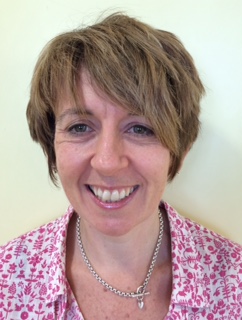 In my post as a paediatric nurse specialist one of the elements I really enjoy is working with children and young people with a range of long-term conditions, from birth until they reach young adulthood. During this time they may face many challenges and obstacles, but the one that seems to cause the most angst to young people and health professionals alike is the transition from the paediatric to the adult healthcare services.
In my post as a paediatric nurse specialist one of the elements I really enjoy is working with children and young people with a range of long-term conditions, from birth until they reach young adulthood. During this time they may face many challenges and obstacles, but the one that seems to cause the most angst to young people and health professionals alike is the transition from the paediatric to the adult healthcare services.
Childhood and adolescence is a natural time of transition. Children move from primary to secondary schools, they move between different peer and friendship groups, and they move towards independence in their thoughts and actions. Within healthcare there is also recognition of this period of transition – not just the physical move from the paediatric to the adult setting, but the transition from a child dependent on parents or carers, to a young person who is independent in managing their condition. The challenge to us all is how to achieve this to ensure that the young person continues to engage with health services once they have left the relative security of the paediatric setting, a setting that is familiar to a young person and their family.
My interest in transition developed after episode when a young person had to be transferred to the adult services as an emergency. It was a poorly timed and unplanned event, and really underlined the need for a more structured approach. It also highlighted that when we (the haematology team) talked about transition we were only really considering the transfer to the adult services, and not looking at the whole process. The main issue that wasn’t being addressed was the ongoing education of the child or young person about their condition, and how to manage it. This spurred me on to ensure that education became a natural part of every interaction with the young person. One of the most rewarding aspects of my role is watching the children becoming independent and taking on roles that their parents have always fulfilled. Administering their own medication, knowing about their condition and being able to explain it to others, and coming to hospital appointments by themselves are all steps towards independence in this area of their life. What I have found is that it is not important how education is delivered; some young people prefer formal structured sessions, whilst others may like a more adhoc, informal style. The important point is that the information is delivered in whichever way best meets the young person’s individual needs.
Having spent much of their life in one healthcare setting it isn't a surprise that some adolescents find the prospect of moving to another setting daunting. It's amazing how a few encouraging words explaining how adult services work, and time spent with the young person planning their transfer can make a real difference. Realistically this cannot be achieved without engagement from the adult staff, whether this is a nurse, doctor or support worker. Transition programmes that work have this two way communication, and from my experience knowing there is a familiar face in the adult services significantly reduces stress for the young person. Seek out and engage with the most appropriate member of the adult team; it can be difficult to identify this person but it will pay dividends to nurture and build this relationship.
Even with all these processes in place, and despite planning and involvement things still go wrong. One of the joys (and frustrations) of working with adolescents is that they are unpredictable and ever changing. Understandably for some of them engaging with a process to become independent in their health management is the last thing on their mind. But don’t give up; you will be surprised at how much information is being retained and processed. Keep plugging away, giving small amounts of information every time you see them.
And as a final thought - don't forget about the parents or carers. They have had responsibility for their child for such a long time it can be difficult for them to let go. Keep them informed about the process and involved in any plans, turning what they may see as a negative process to the positive one of empowering their child.
Anna Farrell is a Haematology Clinical Nurse Specialist at Bristol Royal Hospital for Children
